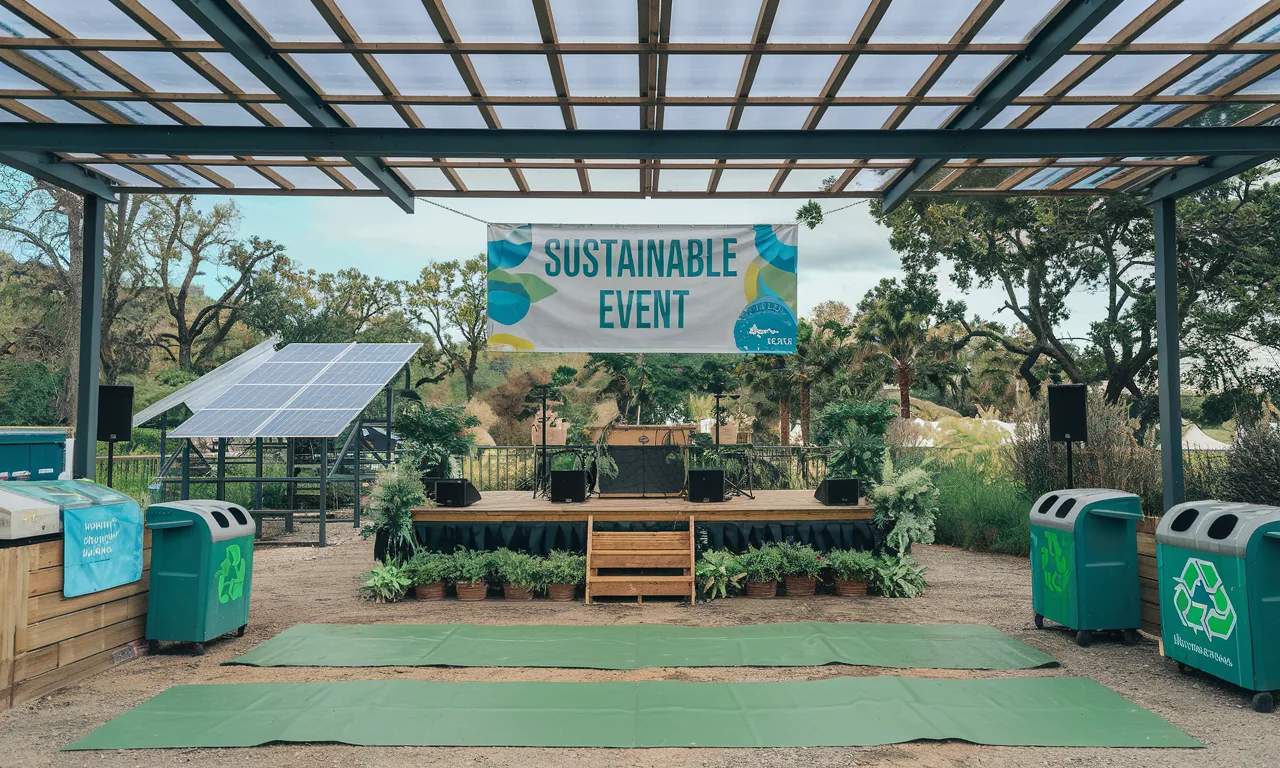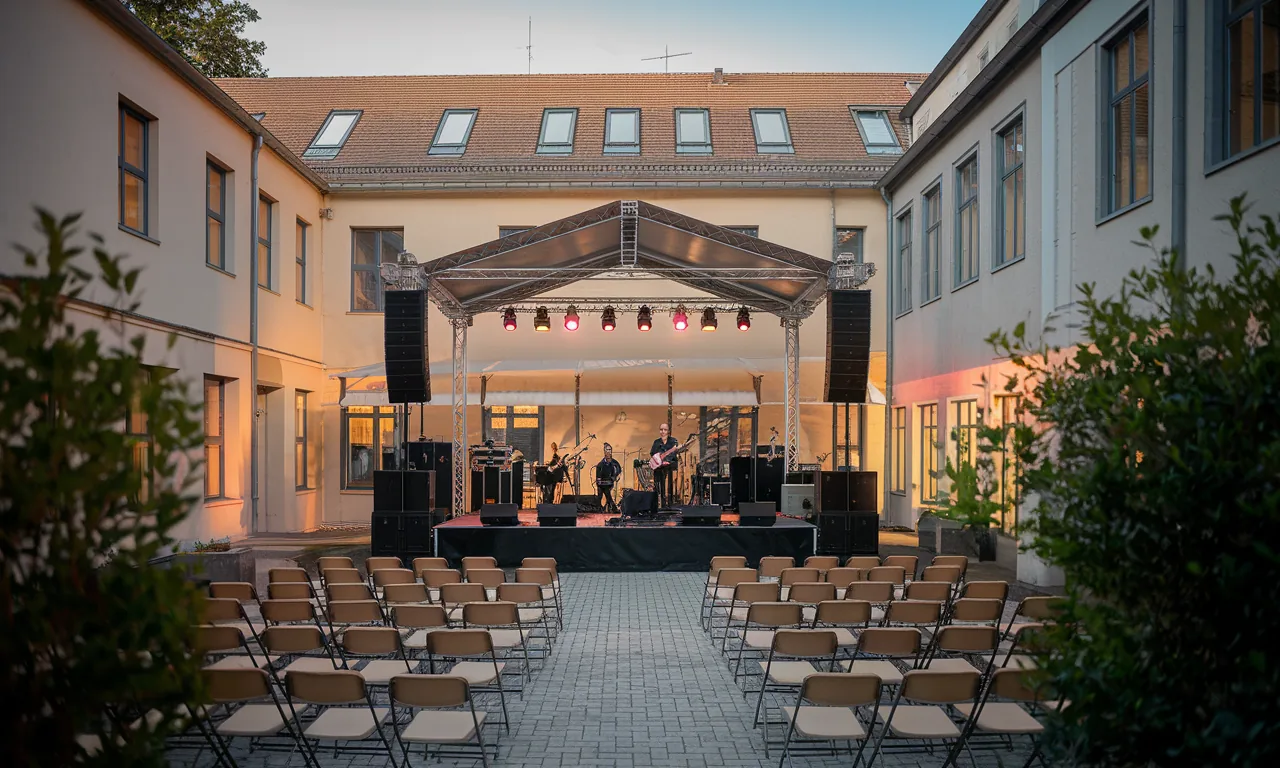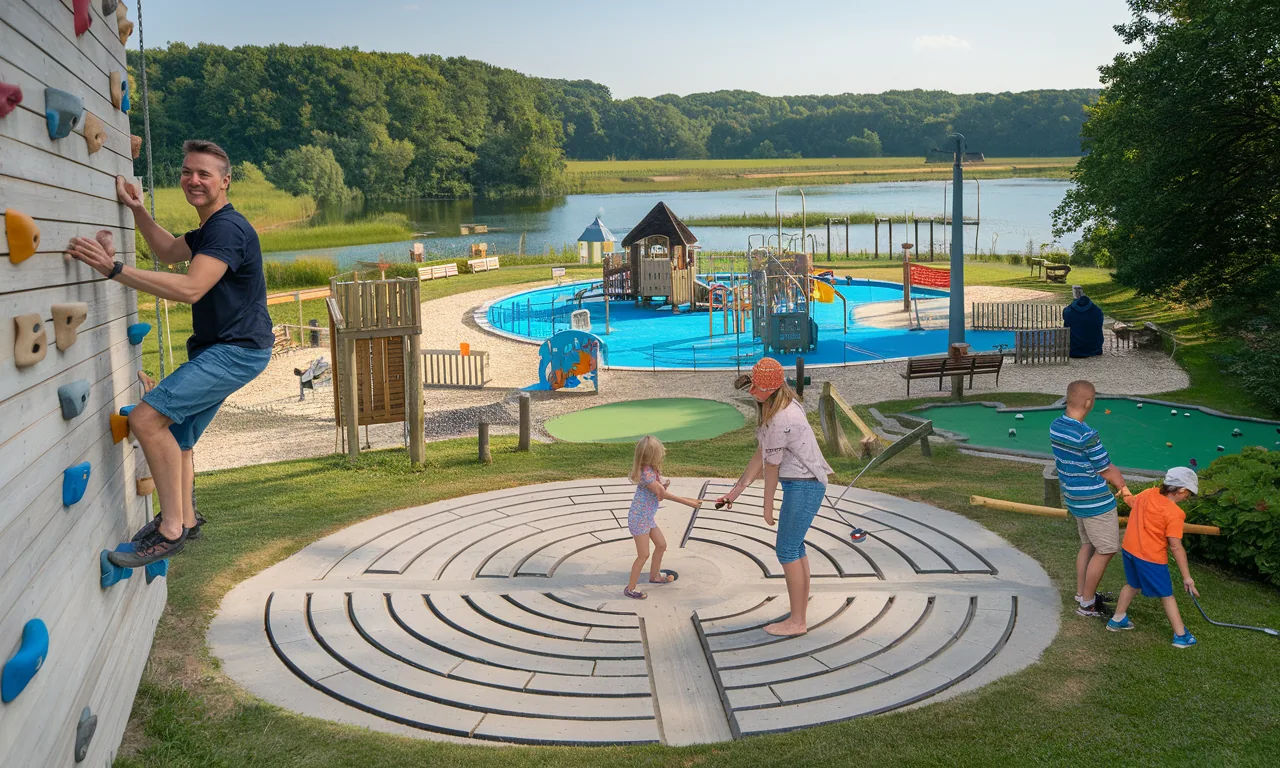Zero Waste & Green Events Hof: how you celebrate green
Zero Waste & Green Events in Hof: Celebrate Sustainably with a System
Hof can show how city festivals bring together climate and atmosphere: with climate-friendly mobility, consistent waste avoidance, well-thought-out reusable systems, regional catering, efficient energy use, and clear communication. This practical guide bundles proven approaches, current trends, and concrete steps for organizers, clubs, service providers, and guests—with a view to upcoming events.
Why Small Decisions Have a Big Impact
Can a city festival reduce its emissions without dampening the mood? Yes. Often, a well-placed bike rack changes the behavior of many people more than an elaborate lighting system. Similarly, clear signage at the reusable return station: those who intuitively find the right way generate less waste—a plus for future events.
Mobility as the Biggest Lever
Arrival and departure are usually the biggest emission factors at events—often higher than the energy used for stage, sound, and lighting. For sustainable events in Hof, public transport, bicycles, and carpooling are therefore the focus. The goal is to make these options so convenient that they become the obvious choice.
Effective for upcoming events are early communication of bus connections, secure bike parking directly at the entrance, simple routes from the train station, collective parking lots with frequent shuttles, and combination tickets (admission + public transport), where possible.
- Promote public transport information early and prominently; make timetables visible online and on-site
- Provide secure, well-lit bike parking near the entrance (including cargo bike options)
- Check combination tickets and shuttle solutions; plan regional collective parking outside
- Mark routes from the train station; set up central, accessible info points
Practical tip: A clear "From the train station to the entrance" plan on the website, ticket, and info board reduces questions and noticeably increases the share of public transport.
Zero Waste with Reusables and Waste Separation
Zero Waste starts before the festival and ends with the clean handover of the areas. Skip unnecessary giveaways, avoid single-use, use reusable dishes with deposit, make return systems highly visible and accessible, and consistently separate waste—this way cups, plates, and packaging become resources in the cycle.
A well-placed, unmistakable sign above the reusable return station intuitively guides guests correctly. Friendly reminders from the team increase return and separation rates. Forward-looking quantity planning reduces food leftovers; remaining food can—if logistically and legally possible—be given away in reusable boxes or donated to social initiatives.
- Use reusables with deposit, plan enough return stations; keep walking distances short
- Label waste separation stations in a uniform color and in multiple languages
- Calculate needs realistically; offer leftovers as a take-away option in reusable containers if possible
- Skip single-use giveaways; use digital alternatives and regional information channels
Signage suggestion (short & clear): "Returning reusables? Get your deposit back here! Please return cups & plates empty."
Sustainable, Regional Catering
Regional, seasonal, plant-based: This reduces environmental impact and lets the taste of the region shine. In Hof and the surrounding area, agriculture offers a wide selection depending on the season. A clearly visible vegetarian and vegan offering reduces climate impact and is well received when implemented creatively.
- Prefer regional, seasonal ingredients; short supply chains and collective delivery
- Clear vegan/vegetarian options; transparently label allergens
- Reusables for transport and serving; water stations instead of single-use bottles
- Brief catering team on waste separation, reusables, allergens, and guidelines
Use Energy, Technology, and Materials Efficiently
Energy efficiency starts in planning: Where is zone lighting with LEDs sufficient? Can the operating time of cooling or heating be shortened? Can shade and natural ventilation be used? The sum of many small decisions reduces energy consumption.
- Use LEDs and demand-based controls; avoid idle times
- Use green electricity where available; test renewable additional solutions (e.g., mobile PV)
- Operate devices efficiently; keep cold chains short, seal technical rooms
- Digital before analog: tickets/documents digital; print only as needed on recycled paper
- Prefer reusable signage and modular rental equipment
Sanitary facilities also offer potential: water-saving fittings, clearly visible refill points, and clear signposting shorten walking distances and avoid congestion.
Social, Accessible, Well Communicated
Green events are more than CO₂ and kilowatt-hours. Accessibility, safety, fair work, and understandable information are standard: accessible entrances, clear language, acoustic and visual cues, quiet zones, and family-friendly offers.
Transparency works: those who openly explain what is being implemented sustainably gain participation. This includes information on public transport and bicycle mobility, reusable returns, waste separation, drinking water, accessibility, and a mission statement in a few sentences.
- Plan accessible routes, seating areas, and sanitary facilities
- Multilingual, easily readable signage; use pictograms
- Provide clear information on public transport, bicycles, returns, water, and emergency exits
- Fair conditions for staff; set up accessible contact points on site
Making Sustainability Measurable: Goals and Key Figures
Anyone who wants to improve zero-waste approaches and green event measures in the long term needs clear goals and key figures. This allows mobility, reusables, waste, and energy consumption to be compared between different events.
- Modal split of arrival (public transport/bike/walk/car)
- Reusable return rate (%) and loss rate
- Waste per guest (kg/guest) including recycling rate
- Energy consumption per event hour (kWh/h) or per guest
- Share of regional and organic-certified products (%)
- Accessibility and satisfaction values from guest feedback
Practical tip: Define KPIs in advance, anchor them in team briefings, and publish them in the post-event report—this strengthens trust and learning curves.
Checklist for Hof: Organization and Guests
For Organizers
- Set goals: mobility, waste and reusables, catering, energy, social, communication
- Plan mobility: public transport info, bike parking, combination tickets/shuttles, routes from the train station
- Organize reusables: providers, deposit system, visible return stations, clear signage
- Waste management: separation stations, train staff, clarify disposal partners and routes
- Brief catering: buy regional/seasonal, vegan/vegetarian options, water stations
- Save energy: LED, time and load plans, green electricity, check renewable additional solutions
- Material & media: digital tickets, reduced printing on recycled paper, reusable signs
- Integrate accessibility: routes, info, quiet zones, accompanying offers
- Ensure transparency: advance info, on-site signs, post-event report with results
For Visitors
- Plan your arrival: use public transport, come on foot or by bike, form carpools
- Bring your own bottle and refill at refill points (if allowed)
- Respect reusables: return deposit in full and do not dispose of dishes
- Take leftovers with you or share; separate waste correctly into designated containers
- Be considerate: keep accessible routes clear, observe and pass on instructions
Local Voices and Places in Hof
Example event location in Hof: Freiheitshalle, Kulmbacher Str. 4, 95030 Hof.
“Perfect place in a way. You will find always some sort of events that might spark your interest. Highly recommended.” — Sannnidh Ramoliya, ★5
“Good event venue - good parking and all you need.” — Mirko Bock, ★5
“Good place for events” — Tim Middlecoate, ★4
“A spacious venue with great acoustics and friendly staff” — David Seezen, ★5
“Excellent layout and more than a place to host an event” — Divine Gakpo, ★5
Source: Google Maps – Freiheitshalle Hof (retrieved 2025-11-13). To the map
Trends, Impact, and Outlook for Green Events
Industry standards systematically address mobility, catering, procurement, energy, waste, social aspects, and communication. The biggest climate lever is in arrival and departure, followed by waste avoidance and reusables, sustainable catering, and energy-efficient technology. Digital tickets, water-saving sanitary technology, regional waste separation, organic products, and accessible implementation with transparent communication are the focus for upcoming events.
Legal developments (e.g., reusable offering obligations) and growing expectations are making green events the new normal. Opportunities arise for Hof: regional supply chains, rental and repair services, reusable providers, bicycle logistics, and sustainable catering strengthen local value creation.
Conclusion: When arrival is thought of green, reusables work, food is regional and plant-based, energy is used intelligently, and information is easy to find, sustainability does not feel like sacrifice—but like the future.
Further Standards and Sources
- ISO 20121: Sustainable events — Requirements with guidance for use — international standard for sustainable event management (accessed 2025-11-13)
- EU Single-Use Plastics Directive — framework for reducing single-use plastics (accessed 2025-11-13)
- Packaging Act §33 (Reusable Offering Obligation) — obligations for takeaway sales (accessed 2025-11-13)
- Packaging Act §34 (Labeling/Information) — information obligations for reusables (accessed 2025-11-13)
- Federal Environment Agency: Organizing Environmentally Friendly Events — information on mobility, waste, energy (accessed 2025-11-13)
- Google Maps: Freiheitshalle Hof — user reviews and orientation (accessed 2025-11-13)




